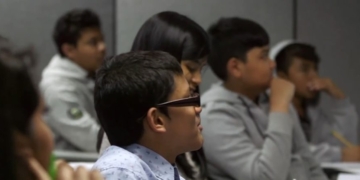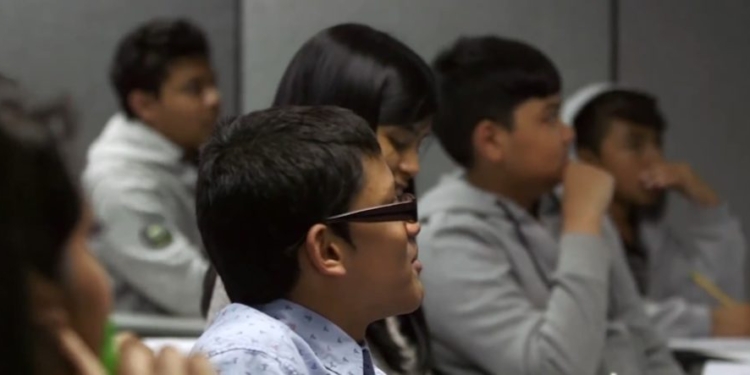In the United States, where freedom of speech is not just a privilege but rather the cornerstone of our constitutional democracy, our First Amendment rights are at stake in Parents Defending Education v. Olentangy Local School District Board of Education.
In July, a three-judge panel of the U.S. Court of Appeals for the Sixth Circuit held that an Ohio school district could enact a code of conduct requiring students to refer to one another based on self-defined gender identity –– i.e., mandating the use of “preferred pronouns.” The ruling effectively compels speech from school-aged children that may contradict deeply held beliefs about biological sex. The Olentangy Local School District’s policy must be struck down.
Thankfully, not all bad decisions stick. Two weeks ago, the Sixth Circuit agreed to rehear the case en banc, a signal that a majority of the circuit’s judges may wish to reconsider the panel’s earlier July ruling. Regardless of the outcome, the loser is likely to file for review before the Supreme Court in the 2026 Term.
The stakes are high as the Sixth Circuit prepares to rule on a case that tees up yet another hot-button debate about pronoun policies, parental rights, religious liberty, and free speech in public schools.
This case is about more than policy. It encompasses the very essence of what it means to be free in thought and expression, particularly in our educational institutions.
The Olentangy Local School District has enacted rules seeking to dictate how students refer to one another based on self-defined gender identity, effectively compelling speech that may contradict deeply held beliefs about biological sex.
This is more than administrative overreach; it is an assault on students’ First Amendment rights to express their views on sex and gender without fear of coercion or reprisal.
That is why Yankee Institute has joined an amicus brief filed by Advancing American Freedom (AAF) to challenge this unconstitutional intrusion on the free speech.
Those imposing such policies often argue that they create a psychologically “safe” environment for all students. But perceived “safety” for some should not come at the expense of freedom for all. The policy at issue does not limit itself to the constitutionally permissible goal of preventing harassment; instead, it imposes a new linguistic (and social) orthodoxy to which students must conform or else be punished.
As George Orwell warned, those who can control language can manipulate thought. The left understands this principle well, as demonstrated in Orwell’s novel “1984,” where Newspeak was enforced to narrow the population’s range of thought.
Such manipulation is not the role of public schools. Schools are supposed to be forums for debate, not indoctrination centers where only one viewpoint is tolerated. Unfortunately, all too often, they have become ground zero for identity politics, with teachers’ unions imposing their ideological agendas rather than providing the real skills our children need.
When a district like Olentangy decides to punish students for expressing beliefs about the immutability of sex, viewpoint discrimination is clearly at play. This is antithetical to the principles laid out by the Supreme Court in cases like Tinker v. Des Moines, where it affirmed that students do not “shed their constitutional rights to freedom of speech or expression at the schoolhouse gate.”
What is more, the policy’s enforcement could lead to a chilling effect on speech, where students would self-censor rather than risk punishment for using language that aligns with their personal beliefs.
This is not just about pronouns; it is about the broader implications for educating youth on tolerance, diversity and the respectful expression of differing opinions.
Olentangy’s policy fails to meet the stringent requirements set forth by the Supreme Court’s precedent on content-based restrictions. The evidence cited by the school district to justify these restrictions — newspaper stories, law review articles and therapist quotes — lacks the substantial proof of disruption necessary to override First Amendment protections.
As seen in Mahanoy Area School District v. B. L., discomfort or upset among students, without more, does not constitute the “substantial disorder” needed to justify speech restrictions.
If school administrators are handed the power to regulate speech, we are teaching our children — and society at large — that we value conformity over individual conscience. This case isn’t about protecting a minority from perceived offense; it is about safeguarding the rights of all students to freedom of speech and conscience, even (or especially!) when it is unpopular or contravenes current cultural trends.
It is time to remind our schools that they exist to maintain the spirit of free inquiry, not to enforce a singular, forced narrative on identity. Let’s ensure that American schools remain places where students can debate, learn and grow into informed citizens who cherish liberty over compelled conformity.
As Emily Dickenson stated: “Truth is such a rare thing, it is delightful to tell it.”
For the sake of our nation’s future, we must protect each individual’s freedom to speak truth as he or she sees it.
Frank Ricci is a Fellow at Yankee Institute and was the lead plaintiff in the landmark Supreme Court case Ricci v Destefano. He retired as a Battalion Chief in New Haven CT. He has testified before Congress and is the author of the book, Command Presence.
The views and opinions expressed in this commentary are those of the author and do not reflect the official position of the Daily Caller News Foundation.
All content created by the Daily Caller News Foundation, an independent and nonpartisan newswire service, is available without charge to any legitimate news publisher that can provide a large audience. All republished articles must include our logo, our reporter’s byline and their DCNF affiliation. For any questions about our guidelines or partnering with us, please contact [email protected].



























 Continue with Google
Continue with Google